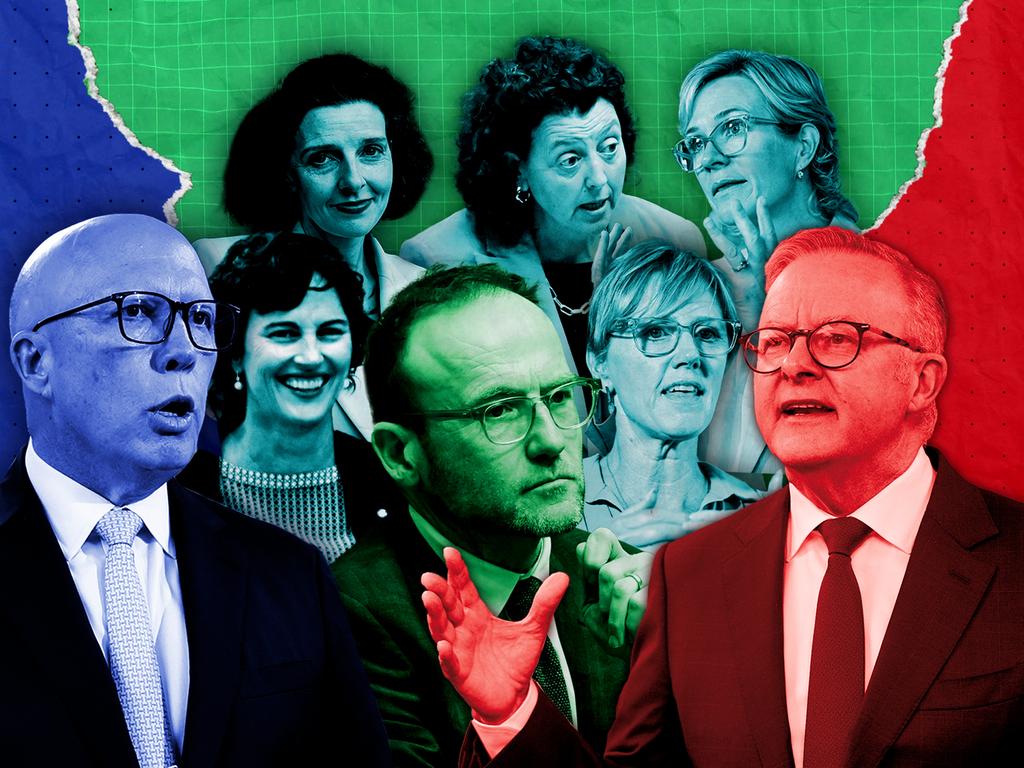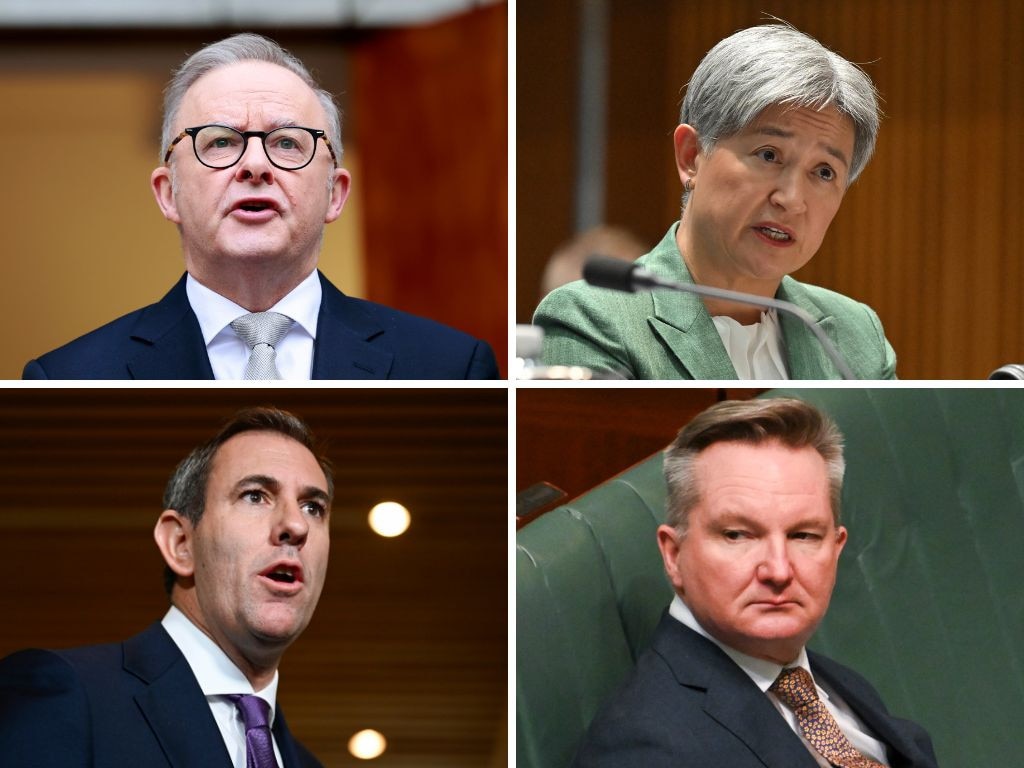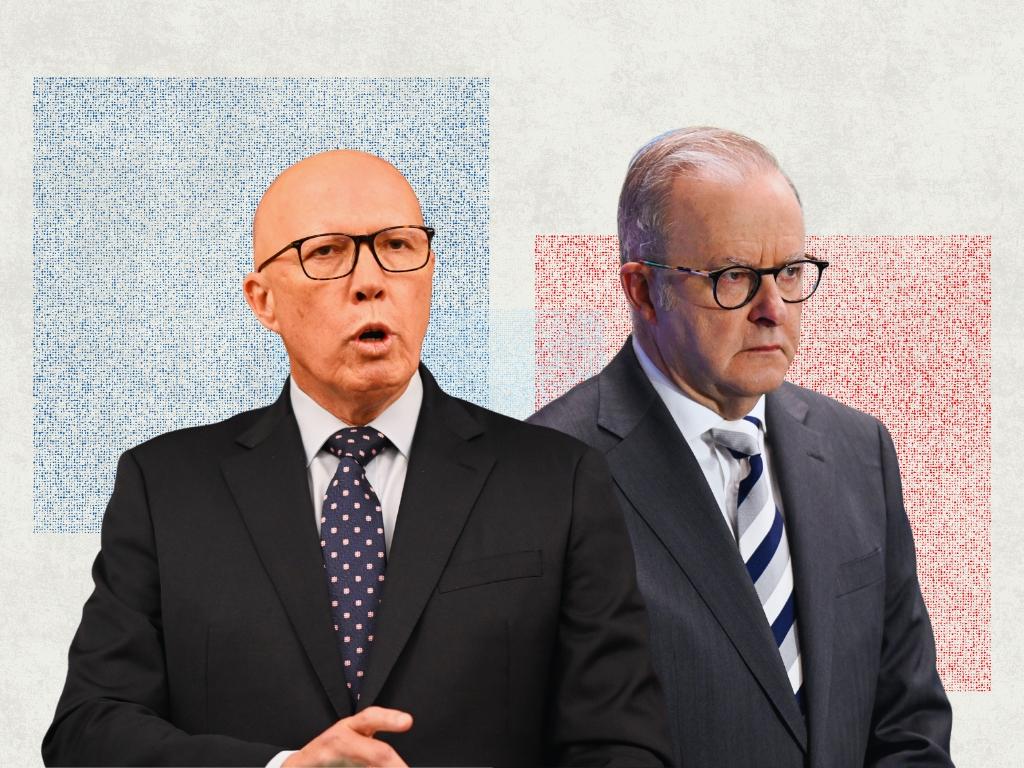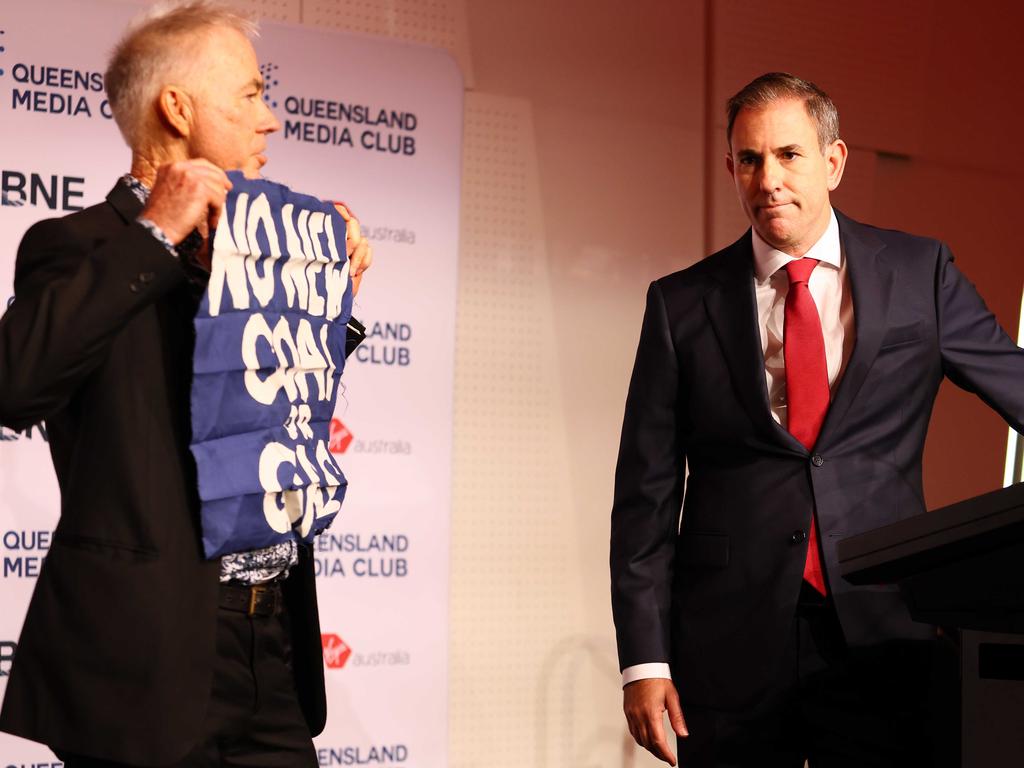Social media influencers dumb down the election
Voters face a serious choice in perilous times – yet political debate has never been so frivolous.

A week into the election campaign you would be hard-pressed to discern a theme from either side. Modern campaigning increasingly seems to work against coherence.
Both leaders and their media packs travel more than ever in private jets from announcement to announcement in crucial seats in one state or another, changing the focus, trying to stay ahead of protesters, racing the news cycle and playing up to social media memes as much as the nightly news. With an “announceable” or two for each day, a clutch of social media takes, podcast appearances and radio interviews, a major media conference and responses to attacks from the other side, all the planets need to be in alignment for a consistent message to emerge on any given day.
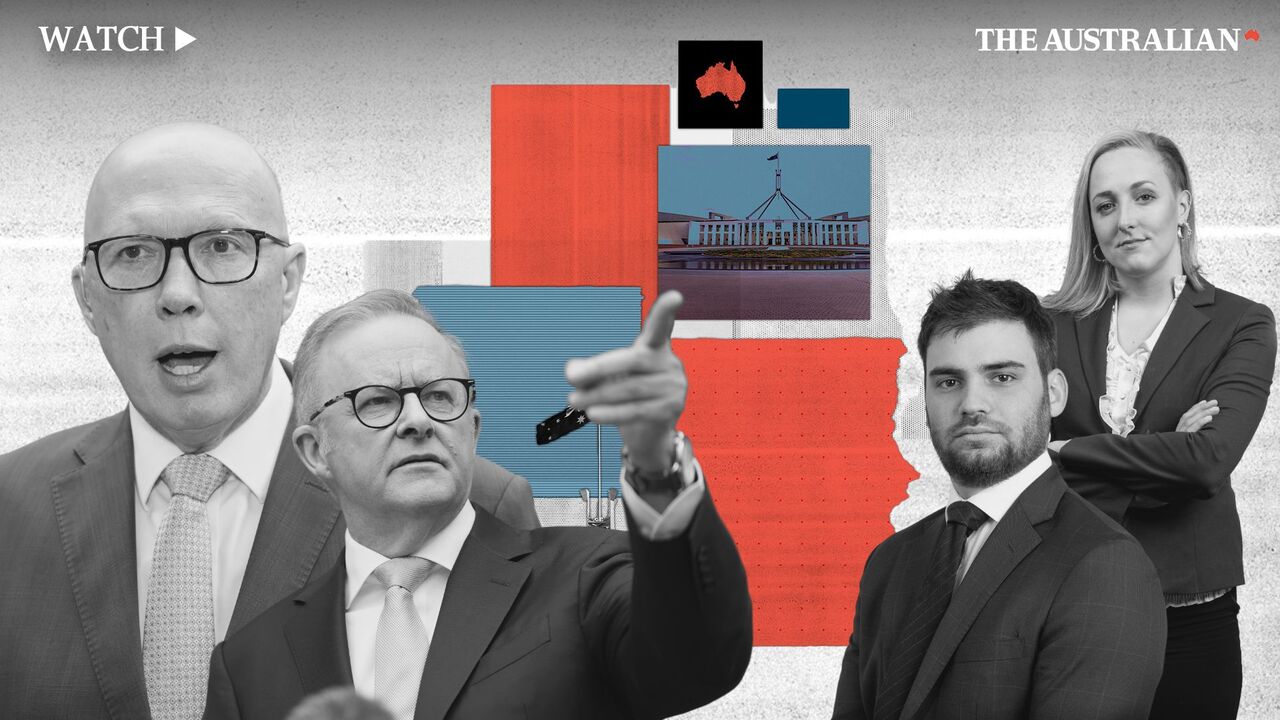
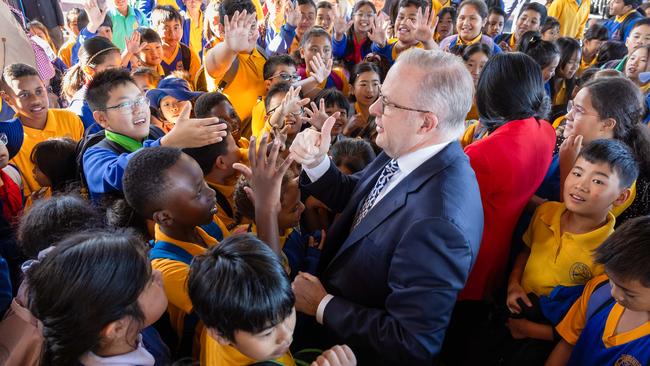
A federal election campaign is no longer an opportunity to foster deep understanding and substantive debates, if it ever was. Rather, it is about superficiality and winning the moment. As it does with most everything else, the digital age seems to be dumbing campaigning down; watch out or soon they may just outsource the whole circus to ChatGPT.
In just a generation federal election campaigns have been transformed from a month-long national conversation to a few weeks of frenetic influencing. Different messages and platforms target various cohorts as messages are framed for silos of self-affirmation.
Labor invited social media influencers into the budget lock-up (it even paid for some) and a few were granted private audiences with the Prime Minister. Peter Dutton too, fronts up for influencer podcasts, vodcasts and FM radio spots.
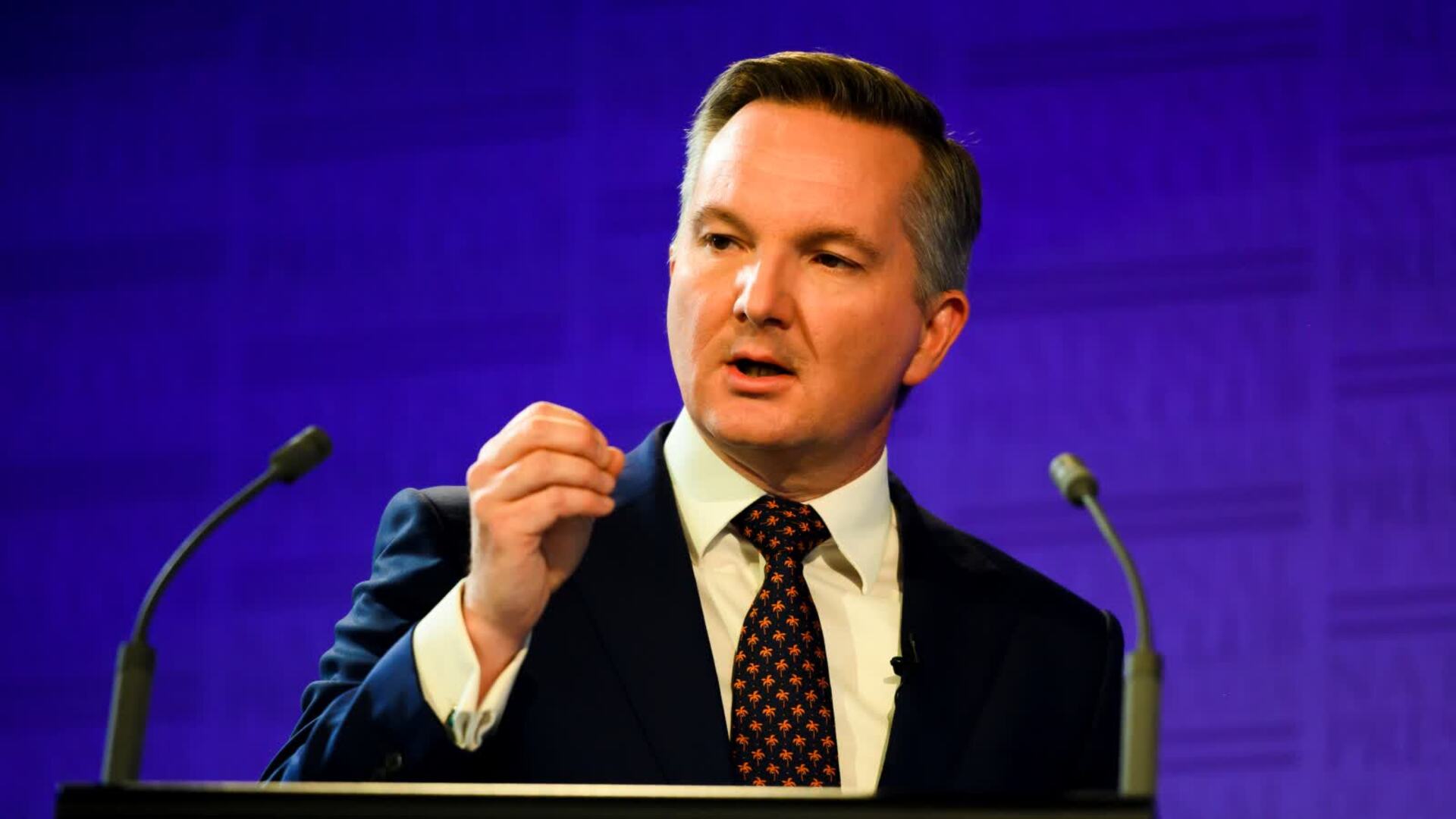
Albanese joined the Happy Hour with Lucy and Nikki podcast, where he heard about “delulu with no solulu” (meaning delusional with no solution) and accepted a dare to use it in a speech.
Sure enough, within days we heard the Prime Minister use the phrase in question time – getting down with the kids. Unfortunately, Albanese employed “delulu with no solulu” as mere partisan abuse of his opponent. It would have served the nation more beneficially as a frank moment of realisation about his renewables-plus-storage electricity mirage.
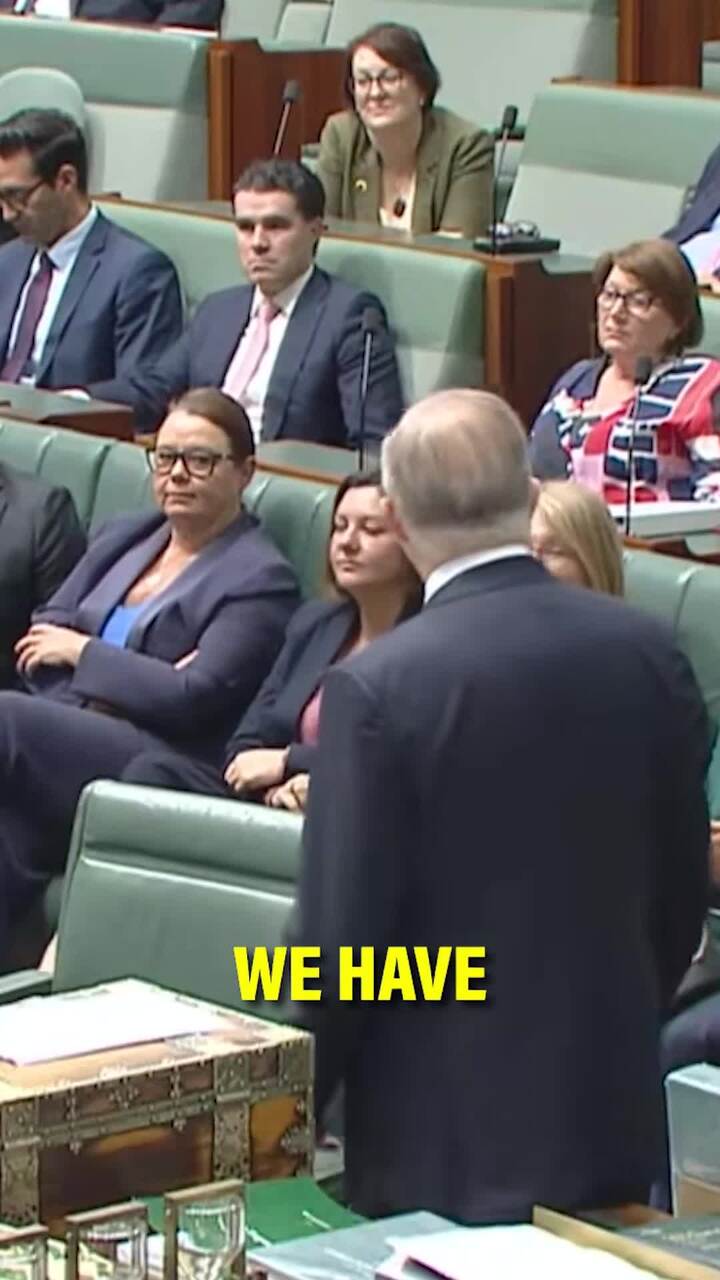
Dutton has granted podcast interviews, too, and it was in a chat early this week with FM radio shock-jocks Kyle Sandilands and Jackie O that he unwisely shared his preference for Kirribilli House rather than the Lodge as a yet-to-be-won prime ministerial abode.
This, by the way, is the same radio program that ran a competition based on recordings of its female staff urinating.
The world is complex and volatile, the strategic and economic challenges are unprecedented, and they manifest more rapidly than ever. Yet the public debate and processes that shape our politics and select our national leadership have never been so frivolous or disconnected.
Voters are confronted with a momentous choice about national governance at a perilous time, yet they are served by a fractured and digitised media that uses algorithms to confirm existing biases, creating silos of reassuring ignorance. The public square as we once knew it no longer exists or is greatly diminished.
We do not gather around the evening news or share information from popular newspapers – there is no agreed set of facts around which the public can debate. It is warring echo chambers via smartphones at any distance near or far.
This is a bigger problem for our society than many realise. We need to talk to each other, we need the contest of ideas.
The ignorance is everywhere. From people angrily chanting “From the river to the sea, Palestine will be free” without knowing which river, which sea or whether Palestine has ever existed as an entity, to others pretending that renewable energy projects in Australia will stop bushfires, cyclones and floods, changing the planet’s climate, even as global emissions rise. It is nonsense.
The inanity is painful to watch. Yet it is echoed and amplified by large parts of the media and politics.
Never before have so many people been so reliant on electricity to conduct their daily communications, yet they have no concept of how that electricity is generated or whether other options such as wind or solar power are plausible. The most materialistic generation in history, whose members were born into a gargantuan carbon footprint, lectures the world about net zero and pretends it can be delivered with zero pain.
Part of me would relish the schadenfreude of seeing these people’s daily lives blacked out in a renewables-plus-storage clustermess. The trouble is that the damage to hardworking families, small businesses and the broader economy would be diabolical.
The stupidity is difficult to comprehend, especially when all the information known to humankind now is accessible at everyone’s fingertips. Yet (and this really is the kicker) we force them all to vote, our compulsory voting rules continue even as the debate sinks to new lows.
But it gets worse. Not only do we force everyone to vote – even the disengaged, uninformed and unmotivated – but we demand they preference every candidate, and we count those preferences until a candidate has 50 per cent plus one of the votes.
Not only does this increase the degree of difficulty for voters, it increases the likelihood of minor parties and independents winning so we end up with parliaments that resemble a European rabble.
As if that is not bad enough, the proportional representation and expanded membership of the Senate ensure an even greater presence for fringe interests, delivering what Paul Keating famously dubbed an “unrepresentative swill”.
The dramatically varied population of our states exacerbates the situation. Tammy Tyrrell of the Jacqui Lambie Network (yes, I had never heard of her either) was the last person elected to the Senate from Tasmania with just 31,000 first-preference votes at the 2022 election but on the same day, to win the final Senate place in NSW, the Greens’ David Shoebridge needed 550,000 votes – talk to me about one vote, one value.
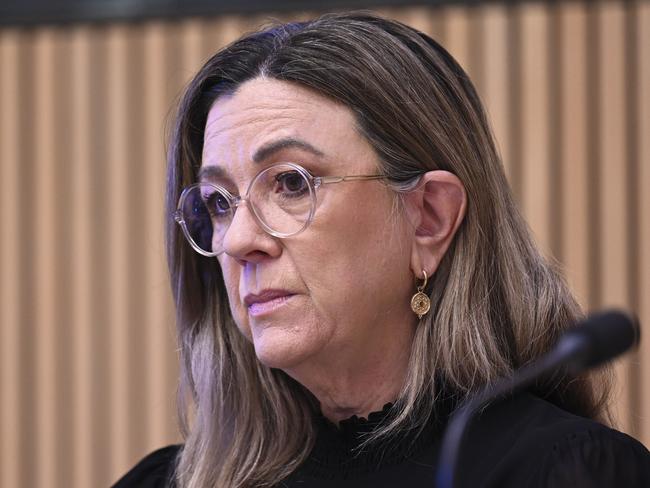
At some stage we need to discuss our electoral system and ways to improve it, some of which would require constitutional change.
High on the list should be debate about voluntary voting, optional preferential, first past the post and shrinking the size of the Senate.
Instead, all we get on electoral reform, even in this election campaign, is a bipartisan desire for four-year terms. All the politicians want is more time in power once they have won it, and they argue this is to improve the quality of governance.
All our experience in state governments is that four-year terms improve nothing. And all our experience across all forms of government over the long term tells us the only form of accountability that counts is the ballot box – no wonder politicians want to shield themselves from it for longer.
So we have four weeks to run in a campaign with no clear themes, no widely shared public forum, myriad silos of information shut off from civil debate and public opinion polls that have a great deal of trouble measuring voter sentiment. Pollsters confront a population without landlines at home and reluctant to answer mobile calls from unknown numbers.
On the basis of the existing polls both major parties are way below par, which suggest an election outcome that could be line ball and messy.
In other words, anything can happen, and early voting begins in just 2½ weeks.
By upending global trade exactly as he promised he would, Donald Trump has heightened world economic risks. Handling this curve ball is an additional campaign test for the contenders.
First-term governments tend to be returned, perhaps to give them a decent chance to prove themselves, or perhaps because voters do not like to admit they got it wrong.
Yet the same digital dynamic that cheapens the contest makes politics more volatile.
Labor is seeking re-election after promising to lower the cost of living, mortgage rates and electricity prices, yet it has failed dramatically on all of those and presided over a per capita recession for most of its term.
It has stubbornly persisted with a failed electricity transition strategy and it has exhibited overwhelming weakness on border security and national security.
It destroyed a hard-won consensus on Indigenous recognition and a voice to parliament, wasting $450m and dividing the country along the way. It has needlessly expanded the public service, failed to rein in the runaway National Disability Insurance Scheme, lost control of government spending and wildly exceeded its immigration targets during a housing crisis.
Albanese appears uncertain and defensive when discussing any serious issues. He appears confident only when he is “fighting Tories”.
The Prime Minister has tried to duck responsibility for freeing criminal non-citizens from detention, stuffing up the referendum, skyrocketing electricity prices, interest rate rises, a structural budget deficit, and record debt. Albanese loves to pass the buck.
Even in this noisy, disparate and incoherent election campaign, it is difficult to imagine most Australians want this hopeless administration to continue. In the 18 years since the end of John Howard’s era, no prime minister has won two elections in a row – it is hard to imagine that Albanese would be the one to break that run.


